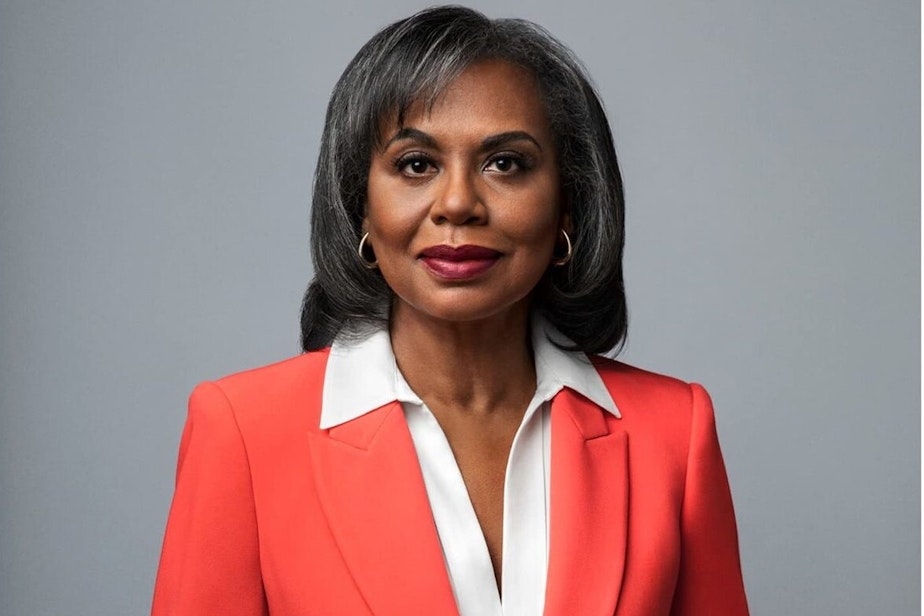Anita Hill on her mission to end gender violence and harassment

Those of us of a certain age may recall with vivid clarity how we first came to know of a woman named Anita Hill. Then a law professor in Oklahoma, Hill accused U.S. Supreme Court nominee Clarence Thomas of sexual harassment during his 1991 Senate confirmation hearings, chaired by then-Senator Joe Biden.
Hill was hesitant to put herself under a spotlight. NPR’s Nina Totenberg broke the story that the Senate Judiciary Committee had ignored an affidavit Hill had submitted that detailed her allegations. Totenberg’s reporting forced the committee to call Hill to testify.
The hearings became a media circus and resulted in further harassment for Hill. Some senators accused her of lying and doubted her sanity. Thomas denied the allegations, and famously called the hearings a “high-tech lynching.” Other women who had offered to come forward to support Hill’s testimony were not called by the committee. Thomas was narrowly confirmed, 52 to 48.
Prior to entering the 2020 presidential race, Biden called Hill to apologize for his handling of the Thomas hearings. He was quoted as saying, “To this day, I regret I couldn’t give her the kind of hearing she deserved.” Hill told the New York Times “I cannot be satisfied by simply saying I’m sorry for what happened to you. I will be satisfied when I know there is real change and real accountability and real purpose.”
Anita Hill is now a professor of Social Policy, Law, and Women's, Gender and Sexuality Studies at Brandeis University. She has spent much of the last 30 years speaking out and educating people about a culture of harassment in the United States, where at least one in four women experience violence from intimate partners, including sexual and verbal abuse and physical assault.
Hill confronts that legacy and outlines paths toward real change in her new book Believing: Our Thirty-Year Journey to End Gender Violence. In it, she argues that the goal of ending gender violence is attainable, but requires work, education, and individual attention from all citizens.
Sponsored
The Elliott Bay Book Company and the Northwest African American Museum presented Anita Hill in conversation with Angela Jones on November 18, 2021. Jones is the co-founder and managing partner of the Black Future Co-op Fund, and the director of the Washington State Initiative at the Bill & Melinda Gates Foundation. Elliot Bay’s director of community engagement Eric Parsons introduced the event.
If you have any feedback on this episode, you can email me at jobrien@kuow.org
Or you can just fill out the form below. We're listening.


